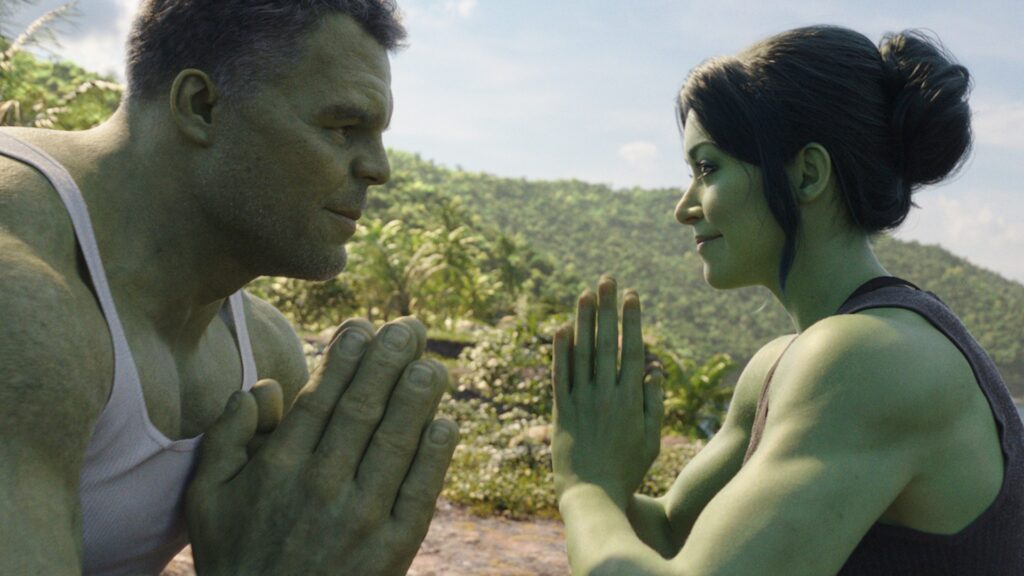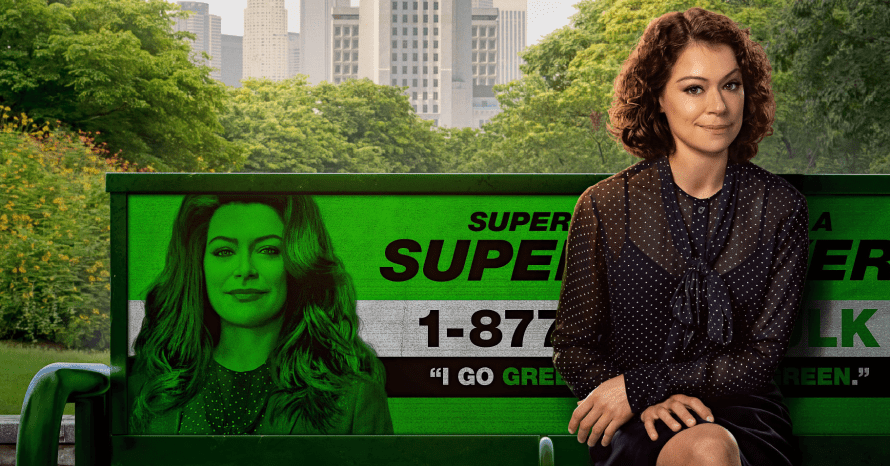Alright. It’s time to talk about the proverbial elephant- well, more of a jade giantess- in the room.
She-Hulk: Attorney At Law ran for nine episodes, and each of those episodes divided the MCU fanbase a little more than the previous episode. Is this series too focused on being woke to have good storytelling, or did it piss off a certain segment of the audience because it hit too close to home? Let’s find out.
Jen Walters (Tatiana Maslany) finds her life turned upside down when she gets into a car accident with her cousin Bruce Banner (Mark Ruffalo)- also known as the Hulk- that leads to his gamma-irradiated blood seeping into her own, making her a Hulk as well. The thing is, she can control her transformation and has full control of her Hulked-out self. Instead of the brute that her cousin turns into, Jen turns into a statuesque, 6’8’’ woman with great hair.
The show follows her adventures in law, as she deals with superhuman (and sometimes, supernatural) clients, as well as her struggles in dating and life in general.
There’s one thing you have to agree about She-Hulk: it’s definitely not the same, bland MCU mishmash of a property that you have seen with the likes of Black Widow or Captain Marvel. The show is unapologetically feminist, as well as a sitcom that puts more emphasis on exploring the trials and tribulations of the modern dating scene than supervillains or having far-reaching consequences for the MCU. Not that the show doesn’t have those things- but they aren’t the main focus here.

Tatiana Maslany quickly makes the role of Jen Walters/She-Hulk her own. Some of the supporting characters, such as Nikki Ramos (Ginger Gonzaga), Mallory Book (Renée Elise Goldsberry), and even Titania (Jameela Jamil) are also standouts.
The show as a whole is generally well-acted, and the superhuman cameos (both brief and extended) are fun and quirky.
The way a certain horned vigilante is dealt with in the show has drawn some criticism, but it’s a more-than-acceptable retooling of the character for the current MCU. Then there are the one-episode bit characters, such as Madisynn (Patty Guggenheim) who achieved instant meme status and have fans clamoring for future appearances.
The show’s format, unfortunately, doesn’t do it many favors. The 30-minute-episodes usually feel like they end just as they were picking up, preventing them from really hitting their strides. The episodic structure of She-Hulk also has rubbed many viewers the wrong way. While there are several good episodes, some of them also feel aimless and weakly structured. It could be that She-Hulk was emulating the likes of Seinfeld in making episodes that are, essentially, about nothing, but the show doesn’t completely pull that off.
The fourth-wall breaks are generally entertaining, culminating in the big moment of the finale. This last, massive fourth wall break leads to a rather abrupt resolution of the show’s plot. If there was at least a bit more confrontation between Jen and the main antagonist, then the resolution would have been sweeter and more justified.
Does She-Hulk intend to piss off a lot of men? Absolutely. Does it also have flaws independent of its feminist tone? Definitely. However, it doesn’t fall short of being great because of focusing too much on a ‘girlboss’ character. That would be like saying bad male-centric action films fail because they are too focused on portraying toxic masculinity. That’s a distinct possibility, but it’s usually not the case.
As flawed as it is, She-Hulk: Attorney At Law is still a fun show, especially for a demographic that hasn’t typically been courted by Marvel Studios with previous content.
Let’s hope that, when She-Hulk returns, either in a second season or in another show or movie, the writers have a better handle on the show’s problems and can take full advantage of this unique character.






















